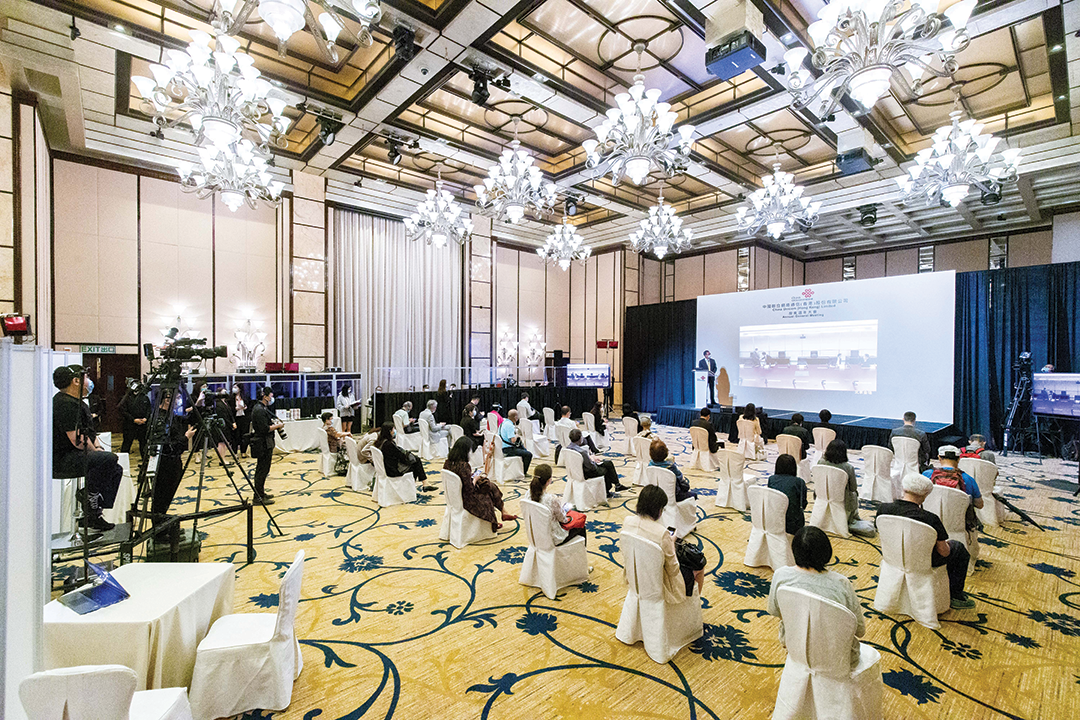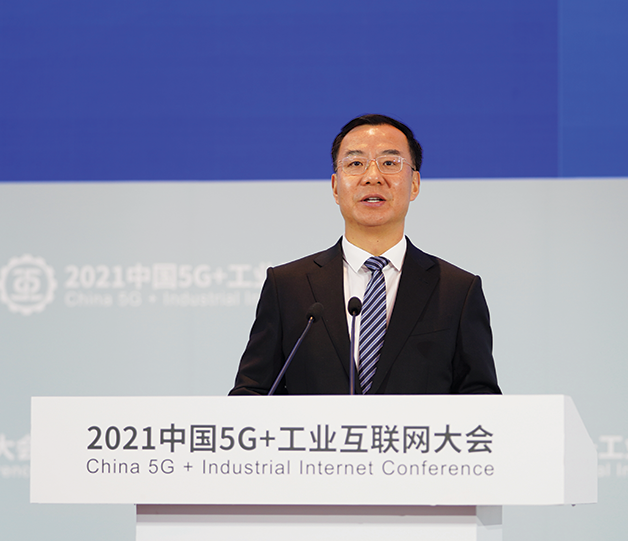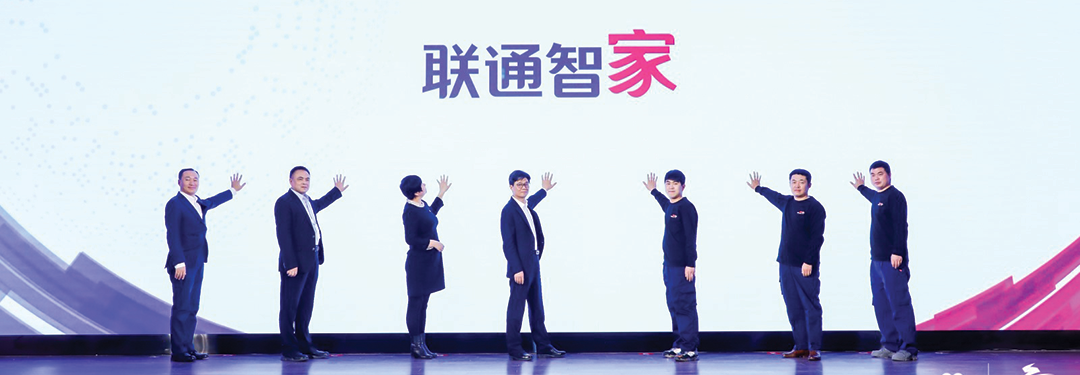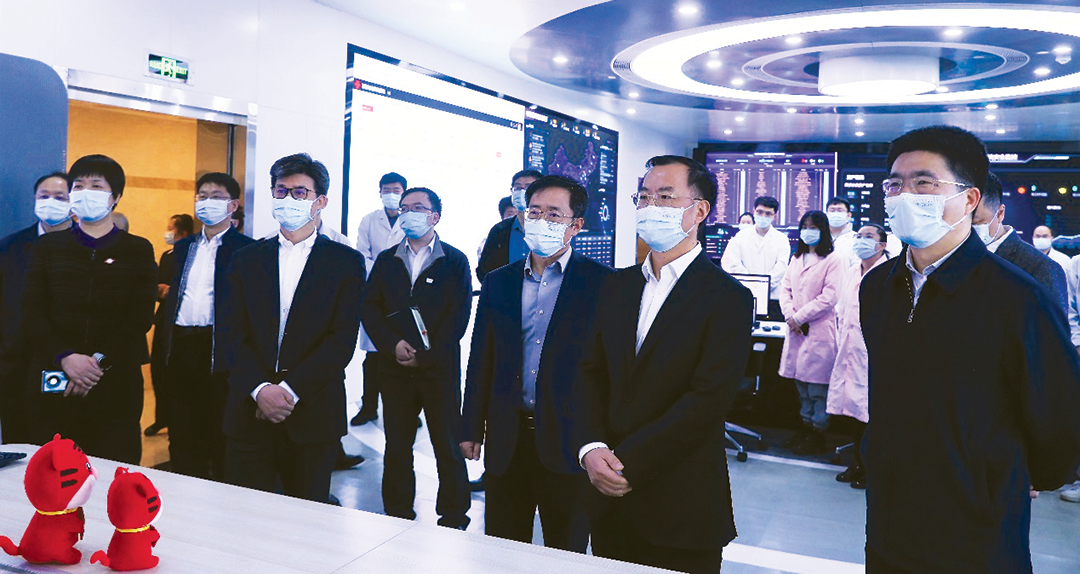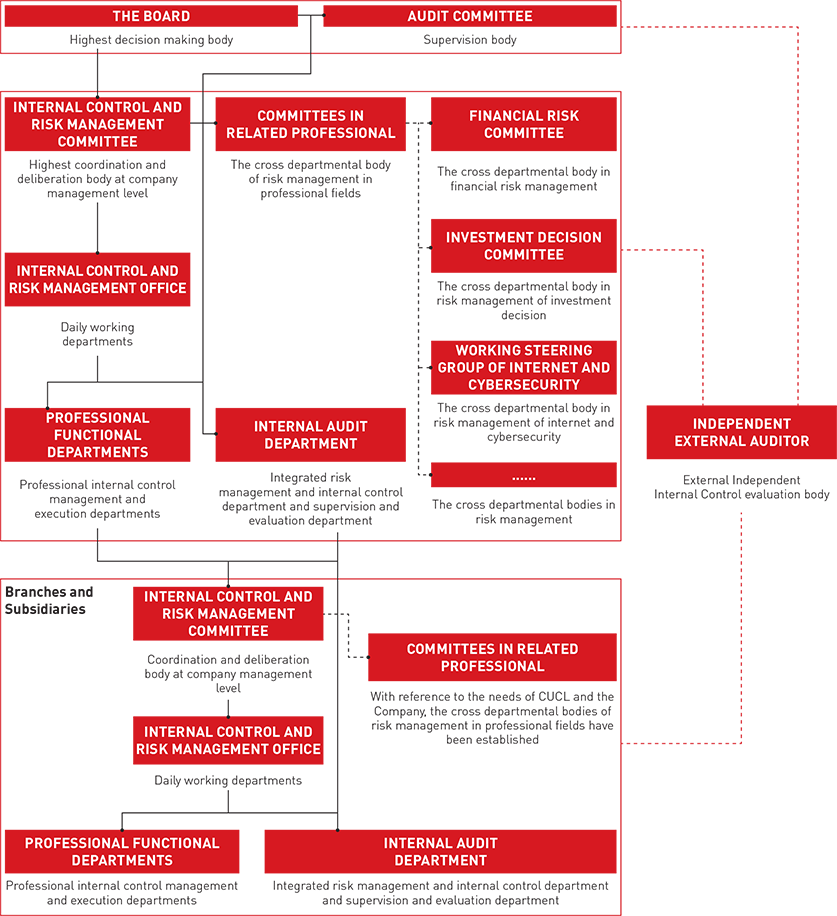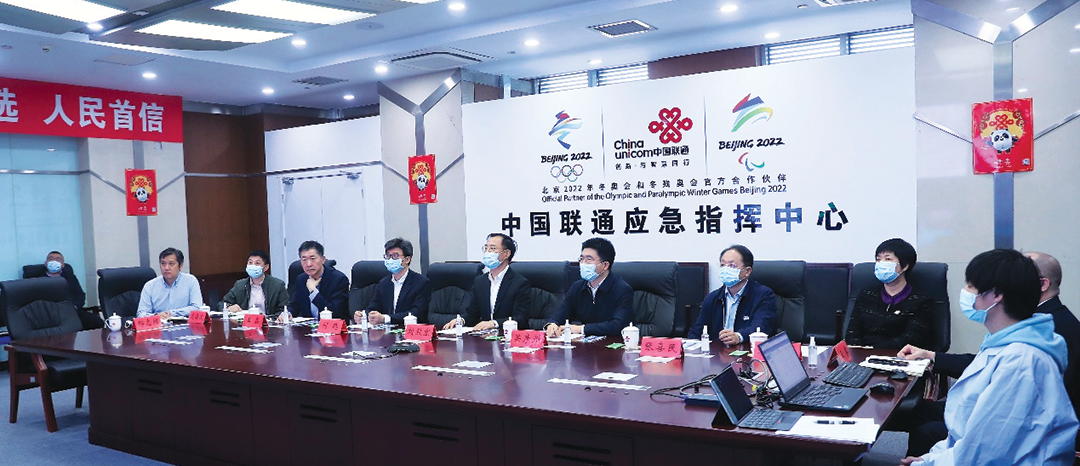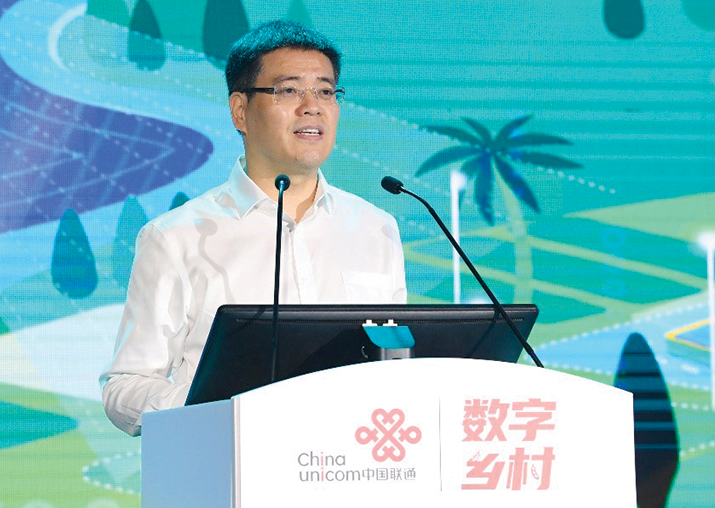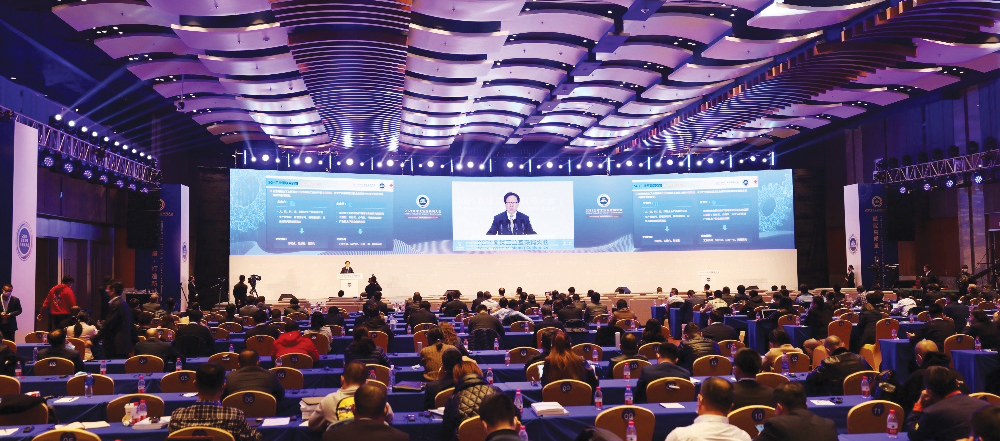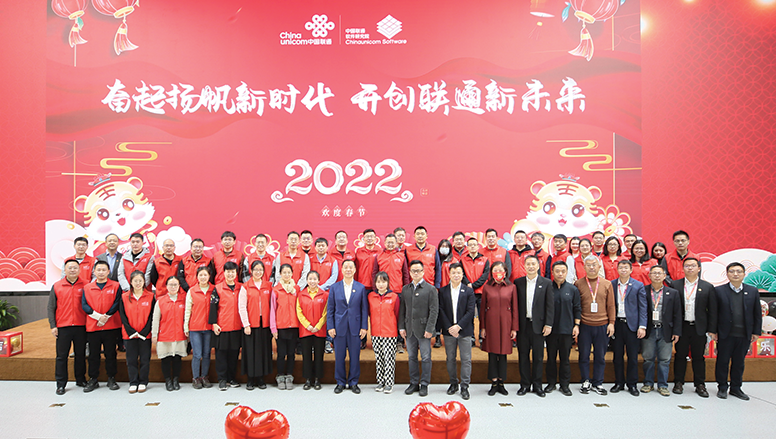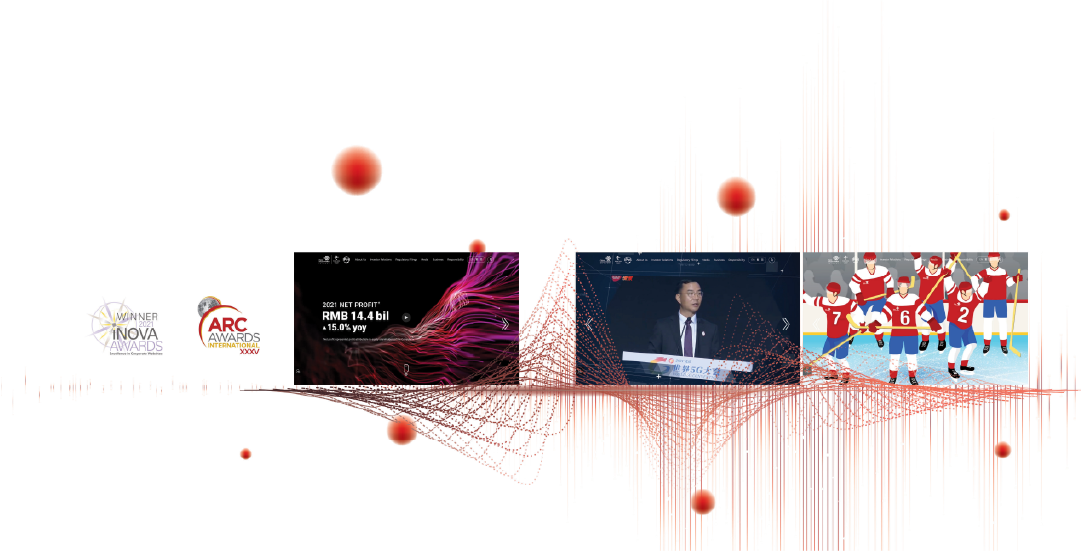The Board is committed to high standards of corporate governance and recognises that good governance is vital for the long-term success and sustainability of the Company’s business. As a company incorporated in Hong Kong, the Company adopts the Companies Ordinance (Chapter 622 of the Laws of Hong Kong), the Securities and Futures Ordinance of Hong Kong and other related laws and regulations as the basic guidelines for the Company’s corporate governance. As a company listed in Hong Kong, the current articles of association are in compliance with the Rules Governing the Listing of Securities on The Stock Exchange of Hong Kong Limited . These rules serve as guidance for the Company to improve the foundation of its corporate governance, and the Company strives to comply with the relevant requirements of international and local corporate governance best practices. The Company has regularly published statements relating to its risk management and internal control in accordance with relevant regulatory requirement to confirm its compliance with related risk management and corporate internal control requirements and other regulatory requirements. The Board is responsible for performing overall corporate governance duties.
The Company has adopted a Corporate Governance Practice which sets out the key terms of reference of the Board on corporate governance functions, including, amongst others, developing and reviewing the Corporate Governance Policy and corporate governance practices of the Company; reviewing and monitoring the training and continuous professional development of Directors and senior management; reviewing and monitoring the Company’s policies and practices on compliance with legal and regulatory requirements; developing, reviewing and monitoring the code of conduct and compliance manual applicable to employees and Directors; and reviewing the Company’s compliance with the Code.
In 2021, the Company’s continuous efforts in corporate governance gained wide recognition from the capital markets and the Company was accredited with a number of awards. The Company was voted as “Asia’s No.1 Most Honored Telecom Company” for six years in a row in “2021 All- Asia Executive Team” ranking organised by the authoritative financial magazine, Institutional Investor. Meanwhile, the Company was also honored with “Asia’s Best ESG (Telecoms)” and “Asia’s Best IR Team (Telecoms)”. The Company was voted by professional investors as “Asia’s No.1 Best Telecommunications Company” and “Best Managed Listed Company in China - 1st” in “Asia’s Best Managed Companies Poll 2021” by FinanceAsia. The Company was awarded “The Best of Asia - Icon on ESG” and “ESG Influencer” by Corporate Governance Asia. The Company was accredited with “Platinum Award — Excellence in Environmental, Social, and Governance” in “The Asset ESG Corporate Awards 2021”.
The Corporate Governance Code (the “Code”) as set out in Appendix 14 of the Rules Governing the Listing of Securities on The Stock Exchange of Hong Kong Limited (the “Listing Rules”) provides for code provisions (the “Code Provisions”) and recommended best practices with respect to (i) Directors, (ii) remuneration of Directors and senior management and evaluation of the Board of Directors (the “Board”), (iii) accountability and audit, (iv) delegation by the Board, (v) communication with shareholders and (vi) company secretary. Other than the disclosures made in the section headed “Board of Directors” below, the Company confirms that for the year ended 31 December 2021, it complied with all the Code Provisions.
BOARD OF DIRECTORS
To serve the best interests of the Company and its shareholders, the Board is responsible for reviewing and approving major corporate matters, including, amongst others, business strategies and budgets, major investments, capital market operations, as well as mergers and acquisitions. The Board is also responsible for monitoring risk management and internal control, reviewing environmental, social and governance strategies, reviewing and approving the announcements periodically published by the Company regarding its business results and operating activities.
In order to achieve a sustainable and balanced development, the Company views Board diversity as a key element for supporting its strategic goals and maintaining sustainable development. The Board membership maintains wide representation. Members of the Board consist of outstanding individuals from different professions. Currently, the Board comprises nine Directors, including five executive Directors and four independent non- executive Directors. Particulars of the Directors are set out on pages 30 to 41 of this annual report. The Company believes that the Board currently comprises experts from diversified professions such as telecommunications, information industry, technology, banking, finance, investment and management, and is diversified in terms of gender, age, duration of service, educational background, professional experience, etc., which contributes to the enhanced management standard and more regulated operation of corporate governance of the Company, and results in a more comprehensive and balanced Board structure and decision-making process.
The below sets out the analysis of the current composition of the Board:
The roles and responsibilities of the Chairman and the Chief Executive Officer of the Company were performed by the same individual for the year ended 31 December 2021. The Company considers that, as all major decisions are made by the Board and relevant Board Committees after discussion, through supervision by the Board and the independent non-executive Directors together with effective internal control mechanism, the Company has achieved a balance of power and authority. In addition, the same individual performing the roles of the Chairman and the Chief Executive Officer can enhance the Company’s efficiency in decision-making and execution, effectively capturing business opportunities.
All independent non-executive Directors of the Company possess good knowledge and experience in different areas. They have been making positive contributions to the development of the Company’s strategies and policies through independent, constructive and informed advices. They have maintained close contact with the management and actively express constructive opinions on matters relating to corporate governance, operation management, risk prevention and the capital market at board meetings. These views and opinions facilitate the Board in making their decisions in the shareholders’ best interests. All independent non-executive Directors, except for their equity interests and remuneration disclosed in this annual report, do not have any business with or financial interests in the Company, its holding company or subsidiaries, and have confirmed their independence to the Company. The functions of non- executive Directors include, amongst other things, attending board meetings, exercising independent judgements at meetings, playing a leading role in resolving any potential conflicts of interest, serving on committees by invitation and carefully examining whether the performance of the Company has reached the planned corporate targets and objectives, and monitoring and reporting on matters relating to the performance of the Company. With respect to the nomination and appointment of new directors and senior management members, the Nomination Committee would, after considering the Company’s need for new directors and/or senior management members, identify a wide range of candidates from within the Company and the human resources market and make recommendations to the Board. The Nomination Committee will consider candidates on merit against objective criteria and with due regard to the benefits of diversity on the Board. After having obtained the consent from candidates in relation to the relevant nomination and based on the Company’s actual needs, the Board would convene a meeting, attendees of which include non-executive Directors, to consider the qualifications of the candidates. The Directors of the Company (including non-executive Directors) are not appointed for a specific term. However, pursuant to the Company’s articles of association, one-third of the directors shall retire from office by rotation and shall be eligible for re-election at each annual general meeting.
Every newly appointed Director is provided with a comprehensive, formal and tailored induction on appointment, including but not limited to the “Guidelines on Directors’ Duties” published by the Hong Kong Companies Registry and the “Guidelines for Directors” published by the Hong Kong Institute of Directors. Directors have fiduciary responsibilities to the company. They must not exercise their powers for improper purposes. They must not use the company’s opportunities to serve their own interests. Their personal interests are not allowed to conflict with the company’s interests, and they must not abuse the company’s assets. The Director would subsequently receive all briefing and professional development necessary to ensure that he/she has proper understanding of the Company’s operations and businesses, full understanding of his/her responsibilities under the statutes, the common law, the Listing Rules, applicable legal and regulatory requirements, and the Company’s business and corporate governance policies. Furthermore, formal letters of appointment setting out the key terms and conditions of the Directors’ appointment will be duly prepared.
Directors’ training is an ongoing process. The Company regularly invites various professionals to provide trainings on the latest changes and development of the legal and regulatory requirements as well as the market and/or industrial environment to Directors. In 2021, the Directors as at 31 December 2021 have participated in various training and continuous professional development activities and the summary of which is as follows:
|
Types of training |
|
|
Executive Director |
|
|
Liu Liehong (Chairman) |
A, B |
|
Chen Zhongyue |
A, B |
|
Wang Junzhi |
A, B |
|
Independent Non-Executive Director |
|
|
Cheung Wing Lam Linus |
A, B |
|
Wong Wai Ming |
A, B |
|
Chung Shui Ming Timpson |
A, B |
|
Law Fan Chiu Fun Fanny |
A, B |
|
|
|
A:attending relevant seminars and/or conferences and/or forums; delivering speeches at relevant seminars and/or conferences and/or forums
B:reading or writing relevant newspapers, journals and articles relating to general economy, general business, telecommunications, corporate governance, business ethics or directors’ duties
The remuneration package for executive Directors includes salary and performance-linked annual bonuses. The remuneration of executive Directors is determined by reference to their respective duties and responsibilities in the Company, their respective experience, prevailing market conditions and applicable regulatory requirements while the award of the performance-linked annual bonuses is tied to the attainment of key performance indicators or targets set by the Company. The remuneration of non-executive Directors is determined by reference to prevailing market conditions and their respective responsibilities and workload from serving as non-executive Directors and members of the board committees of the Company. The Company also adopted share option scheme for the purpose of providing long term incentives to eligible participants, including Directors (details of such share option scheme are set out in the paragraph headed “Share Option Scheme of the Company” on pages 70 to 71 of this annual report). The remuneration for each Director and the remuneration of senior management by band are disclosed on pages 147 to 148 of this annual report. In addition to the remuneration, the Company has arranged appropriate insurance coverage in respect of legal action against the Directors.
The Board has provided clear guidelines for delegation of powers and responsibilities to management. However, certain important matters must be decided only by the Board, including, but not limited to, long- term objectives and strategies, annual budget, initial announcements on quarterly, interim and final results, dividends, major investments, equity-related capital market operations, mergers and acquisitions, major connected transactions and annual internal control evaluation. The arrangements on delegation of powers and responsibilities to management are reviewed by the Board periodically to ensure that they remain appropriate to the needs of the Company.
The Board convenes meetings regularly and all Directors have adequate opportunity to be present at the meetings and to include matters for discussion in the meeting agenda. Notices of regular board meetings are delivered to the Directors at least 14 days in advance of the meetings. The Company delivers, on a best endeavor basis, all documents for regular board meetings to the Directors at least one week prior to the meetings (and ensures that all documents are delivered to the Directors no less than three days prior to the regular meetings as required by the Code Provisions).
The Company Secretary, being an employee of the Company, has day-to-day knowledge of the Company’s affairs and reports to the Chairman of the Board. He keeps close contact with all Directors and ensures that the operation of the Board and all board committees is in compliance with the procedures as set forth in the Company’s articles of association and the charters of the board committees. Additionally, the Company Secretary is responsible for compiling and regularly submitting draft minutes of board meetings and committee meetings to the Directors and committee members for their comment, and final versions of minutes for their records, within a reasonable time after the relevant meetings. Each Director may obtain advice from and the services of the Company Secretary to ensure that board procedures, and all applicable rules and regulations, are followed. Physical board meetings will be held for the selection, appointment or dismissal of the Company Secretary. To ensure the possession of up-to-date knowledge and market information to perform his duties, the Company Secretary attended over 15 hours of professional training in 2021.
The Directors may, upon request, obtain independent professional advice at the expense of the Company. In addition, if any substantial shareholder of the Company or any Directors has significant conflicts of interest in a matter to be resolved, the Board will convene a board meeting in respect of such matter and those Directors who have conflicts of interest must abstain from voting and will not be counted in the quorum of the meeting.
All Directors are required to devote sufficient time and attention to the affairs of the Company. A culture of openness and debate are promoted in the Board and the Directors are encouraged to express their views and concerns. The Company provides monthly operating update to the Directors, so as to ensure the Directors are familiar with the Company’s latest operations. In addition, through regular board meetings and reports from management, the Directors are able to clearly understand the operations, business strategy and latest development of the Company and the industry. Besides formal board meetings, the Chairman also meets annually with independent non-executive Directors, without the presence of other Directors, which further promotes the exchange of diversified views and opinions. In order to ensure that all Directors have appropriate knowledge of the matters discussed at the meetings, adequate, accurate, clear, complete and reliable information regarding those matters is provided in advance and in a timely manner, and all Directors have the right to inspect documents and information in relation to matters to be decided by the Board. The Directors have frequently visited various branches in Mainland China to gain better understanding of the Company’s daily operations. In addition, the Company has arranged relevant trainings for the Directors (which include training sessions conducted by professional advisers, such as lawyers and accountants, from time to time) in order to broaden their knowledge in the relevant areas and to improve their understanding of the Company’s business, legal and regulatory requirements and the latest operational technologies. The Board also conducts annual evaluation of its performance. Such efforts have improved the corporate governance of the Company.
In 2021, the Board held four board meetings and passed five written resolutions for, amongst other things, discussion and approval of important matters such as the 2020 annual results, the 2020 Form 20-F, the 2021 annual budget, the 2021 interim results, the first and the first three quarters results for 2021, corporate social responsibility report, reports on risk management and internal control, the appointment of executive Directors and Senior Vice President, termination of ADSs program.
Set forth below is an overview of the attendance during the year of 2021 by the Board members at various meetings:
|
Meetings Attended/Held During Each Director’s Tenure |
|||||
|
|
|||||
|
Board |
Audit |
Remuneration |
Nomination |
Shareholders |
|
|
Executive Directors |
|||||
|
Liu Liehong (Chairman)1 |
1/1 |
N/A |
N/A |
N/A |
N/A |
|
Wang Xiaochu2 |
3/3 |
N/A |
N/A |
1/1 |
1/1 |
|
Chen Zhongyue3 |
3/4 |
N/A |
N/A |
N/A |
1/1 |
|
Wang Junzhi4 |
N/A |
N/A |
N/A |
N/A |
N/A |
|
Li Fushen5 |
2/2 |
N/A |
N/A |
N/A |
1/1 |
|
Zhu Kebing6 |
1/2 |
N/A |
N/A |
N/A |
0/1 |
|
Fan Yunjun7 |
1/2 |
N/A |
N/A |
N/A |
N/A |
|
Independent Non-Executive Directors |
|||||
|
Cheung Wing Lam Linus |
4/4 |
4/4 |
1/1 |
N/A |
1/1 |
|
Wong Wai Ming |
4/4 |
4/4 |
1/1 |
N/A |
1/1 |
|
Chung Shui Ming Timpson |
4/4 |
4/4 |
1/1 |
1/1 |
1/1 |
|
Law Fan Chiu Fun Fanny |
4/4 |
4/4 |
N/A |
1/1 |
1/1 |
|
|
|
|
|
|
|
Note 1:On 3 September 2021, Mr. Liu Liehong was appointed as executive Director of the Company.
Note 2:On 27 August 2021, Mr. Wang Xiaochu has resigned as executive Director of the Company.
Note 3:On 19 February 2021, Mr. Chen Zhongyue was appointed as executive Director of the Company.
Note 4:On 3 December 2021, Mr. Wang Junzhi was appointed as executive Director of the Company.
Note 5:On 11 June 2021, Mr. Li Fushen has resigned as executive Director of the Company.
Note 6:On 18 June 2021, Mr. Zhu Kebing has resigned as executive Director of the Company.
Note 7:On 28 April 2021, Mr. Fan Yunjun has resigned as executive Director of the Company.
In 2021, the Board performed their fiduciary duties and devoted sufficient time and attention to the affairs of the Company. The Board works effectively and performs its responsibilities efficiently with all key and appropriate issues being discussed and approved in a timely manner.
The Company has adopted the “Model Code for Securities Transactions by Directors of Listed Issuers”, as set out in Appendix 10 to the Listing Rules (the “Model Code”) to govern securities transactions by directors. Further to the specific enquiries made by the Company to the Directors, all Directors have confirmed their compliance with the Model Code for the year ended 31 December 2021.
The Directors acknowledge their responsibilities for preparing the financial statements for the year ended 31 December 2021, which give a true and fair view of the financial position of the Company as at the statement of financial position date and financial performance and cash flows of the Company for the year ended the statement of financial position date, are properly prepared on the going concern basis in accordance with relevant statutory requirements and applicable financial reporting standards. A statement of the independent auditors about their reporting responsibilities related to the financial statements is set out in the independent auditor’s report on pages 92 to 96 of this annual report.
COMMITTEES UNDER THE BOARD
The Company has established three committees of the Board under the Board, the Audit Committee, the Remuneration Committee and the Nomination Committee. Each committee has a written charter, which is available on the websites of the Company and The Stock Exchange of Hong Kong Limited (the “Hong Kong Stock Exchange”). From time to time as required by the Listing Rules, the Board also establishes independent board committee for the purpose of advising and providing voting recommendations to independent shareholders on connected transactions and transactions subject to independent shareholders’ approval entered into by the Company and/or its subsidiaries. The committees are provided with sufficient resources, including, amongst others, obtaining independent professional advice at the expense of the Company, to perform its duties. The committees report their decisions or recommendations to the Board after meetings.
Audit Committee
Composition
Currently the Audit Committee comprised Mr. Wong Wai Ming, Mr. Cheung Wing Lam Linus, Mr. Chung Shui Ming Timpson and Mrs. Law Fan Chiu Fun Fanny, all being independent non-executive Directors of the Company. The Chairman of the Audit Committee is Mr. Wong Wai Ming. All members of the Audit Committee have satisfied the “independence” requirements in relation to an Audit Committee member under applicable laws, regulations and rules. The Chairman of the Audit Committee is an accountant with expertise and experience in accounting and financial management. Another member of the Audit Committee is also an accountant with extensive accounting professional experience.
Major Responsibilities
The primary responsibilities of the Audit Committee include: as the key representative body, overseeing the Company’s relationship with the independent auditor, considering and approving the appointment, resignation and removal of the independent auditor; pre-approval of services and fees to be provided by the independent auditor based on the established pre-approval framework; supervising the independent auditor and determining the potential impact of non-audit services on such auditor’s independence; reviewing quarterly and interim financial information as well as annual financial statements; coordinating and discussing with the independent auditor with respect to any issues identified and recommendations made during the audits; reviewing correspondences from the independent auditor to the management and responses of the management; discussing the risk management and internal control system with the management as well as reviewing the reports on the risk management and internal control procedures of the Company. The Audit Committee also has the authority to set up a reporting system to receive and handle cases of complaints or complaints made on an anonymous basis regarding the Company’s accounting, internal control and audit matters. Any complaints on the aforementioned subject matters can be submitted by post (No. 21 Financial Street, Xicheng District, Beijing, 100033, China) or by phone (86-(010) 88091674). The Audit Committee is responsible to and regularly reports its work to the Board.
Work Completed in 2021
The Audit Committee meets the Board and management as well as independent auditor at least four times each year, and assists the Board in its review of the financial statements to ensure effective risk management and internal control as well as efficient audit. Besides, the Audit Committee meets the independent auditor at least two times each year, without the presence of other Directors and management.
The Audit Committee held four meetings in 2021 for, amongst other things, discussion and approval of the 2020 annual results, the 2020 Form 20-F, the 2021 interim results, and the first and the first three quarters results for 2021. In addition, the Audit Committee approved in the meetings the corporate social responsibility report, the report of the work of corporate social responsibility, the report on risk management, the report on internal audit and internal control, the report on continuing connected transaction, the appointment, the audit fees and the audit plans of the independent auditor as well as the non-audit services provided by the independent auditor in 2021.
The Audit Committee has performed its duties effectively, and enabled the Board to better monitor the financial condition of the Company, supervise the risk management and internal control of the Company, ensure the integrity and reliability of the financial statements of the Company, prevent significant errors in the financial statements and ensure the Company’s compliance with the relevant requirements of the Listing Rules with respect to audit committee.
Remuneration Committee
Composition
Currently the Remuneration Committee comprised Mr. Cheung Wing Lam Linus, Mr. Wong Wai Ming and Mr. Chung Shui Ming Timpson, all being independent non-executive Directors of the Company. The Chairman of the Remuneration Committee is Mr. Cheung Wing Lam Linus.
Major Responsibilities
The primary responsibilities of the Remuneration Committee include: making recommendations to the Board on the policies and structure for all Directors’ and senior management’s remuneration and on the establishment of a formal and transparent procedure for developing remuneration policy; reviewing and approving the management’s remuneration proposals with reference to the corporate goals and objectives set by the Board; making recommendations to the Board on the remuneration packages of individual executive Directors and senior management (including benefits in kind, pension right and compensation payments, including any compensation payable for loss or termination of their office or appointment); making recommendations to the Board on the remuneration of non-executive Directors; consulting the Chairman about the remuneration proposals for other executive Directors; considering salaries paid by comparable companies, time commitment and responsibilities and employment conditions elsewhere in the Group; considering any concrete plan proposed by the management of the Company for the grant of option which has not been granted, and any plan to amend any existing option scheme of the Company; reviewing and approving compensation payable to executive Directors and senior management for any loss or termination of office or appointment to ensure that it is consistent with contractual terms; reviewing and approving compensation arrangements relating to dismissal or removal of Directors for misconduct to ensure that they are consistent with contractual terms; and ensuring that no Director or any of his/her associates is involved in deciding his/her own remuneration.
Work Completed in 2021
The Remuneration Committee meets at least once a year. The Remuneration Committee held one meeting in 2021 for, amongst other things, discussion and approval of proposal for appraisal and remuneration of senior management.
The Remuneration Committee has performed its duties effectively on reviewing and approving the proposal of appraisal of senior management, as well as making recommendations to the Board with regards to the remuneration packages for senior management.
Nomination Committee
Composition
Currently the Nomination Committee comprised Mr. Chung Shui Ming Timpson, Mr. Liu Liehong and Mrs. Law Fan Chiu Fun Fanny. Except for Mr. Liu Liehong, who is the Chairman and CEO of the Company, Mr. Chung Shui Ming Timpson and Mrs. Law Fan Chiu Fun Fanny are independent non-executive Directors of the Company. The Chairman of the Nomination Committee is Mr. Chung Shui Ming Timpson.
Major Responsibilities
The primary responsibilities of the Nomination Committee include: reviewing the structure, size and composition (including the skills, knowledge and experience) of the Board at least annually and making recommendations on any proposed changes to the Board to complement the corporate strategy of the Company; identifying individuals suitably qualified to become Board members and making recommendations to the Board; formulating, reviewing and implementing the board diversity policy; assessing the independence of independent non-executive Directors; making recommendations to the Board on the appointment or re-appointment of Directors and succession planning for Directors; providing advice to the Board on candidates of the senior management nominated by the CEO and on changes to the senior management of the Company.
Work Completed in 2021
The Nomination Committee meets at least once a year. The Nomination Committee held one meeting and passed four written resolutions in 2021 for, amongst other things, reviewing the structure, size and composition of the Board, assessment of the independence of independent non-executive Directors, making recommendations to the Board on the proposed re-election of Directors, the appointment of executive Director and senior vice president.
The Company has adopted nomination policy. With respect to the nomination and appointment of new directors and senior management members, the Nomination Committee would, after considering the Company’s need for new directors and/or senior management members, identify a wide range of candidates from within the Company and the human resources market and make recommendations to the Board. The Nomination Committee will consider candidates on merit against objective criteria and with due regard to the benefits of diversity on the Board. After having obtained the consent from candidates in relation to the relevant nomination and based on the Company’s actual needs, the Board would convene a meeting, attendees of which include non-executive Directors, to consider the qualifications of the candidates. The Directors of the Company (including non-executive Directors) are not appointed for a specific term but are subject to retirement by rotation at general meetings. Pursuant to the Company’s articles of association, one-third of the Directors shall retire from office by rotation and be eligible for re-election at each annual general meeting.
The Company has also adopted a policy concerning diversity of board members. The Company recognises and embraces the benefits of having a diverse Board, and notes increasing diversity at Board level as an essential element in maintaining a competitive advantage. All Board appointments are made on merit, in the context of the skills and experience the Board as a whole requires to be effective. In reviewing Board composition, the Nomination Committee will consider their professional knowledge, skills, experience and the balance of diversity of perspectives which are appropriate to the Company’s business model and specific needs. In identifying suitable candidates for appointment to the Board, the Nomination Committee will with due regard to the benefits of diversity on the Board and base on a range of diversity perspectives including but not limited to gender, age, cultural and educational background, professional experience, skills, knowledge and duration of service. The ultimate decision will be based on merit and contribution that the selected candidates will bring to the Board.
In addition, pursuant to the Company’s articles of association, shareholder may propose other person for election as a director at general meeting. The proposal will be considered and approved in the general meeting. With regard to the procedure for shareholder to propose a person for election as a director, please visit the Company’s website at https://www.chinaunicom.com.hk/en/about/cg_report.php.
INDEPENDENT AUDITOR
Deloitte Touche Tohmatsu is the independent auditor of the Company. Apart from audit services, it also provides other assurance and non-audit services. The audit committees supervised the independent auditor and determined the potential impact of non-audit services on such auditor’s independence, and pre-approved the services and fees to be provided by the independent auditor based on the established pre-approval framework. The remuneration paid/payable to the independent auditor for provision of services in 2021 is as follows:
|
2021 |
||
|
Items |
Note |
(in RMB thousands) |
|
Audit and other assurance services |
(i) |
40,478 |
|
Non-audit services |
(ii) |
8,188 |
|
|
|
|
Notes:
(i)Audit and other assurance services in 2021 mainly included the provision of audit service for the Company’s consolidated financial statements, and statutory audit services for the financial statements of its subsidiaries, as well as the provision of other assurance services.
(ii)Non-audit services included other services that can be reasonably provided by the independent auditor. In 2021, the provisions of non-audit services mainly included tax compliance services and other advisory services.
RISK MANAGEMENT AND INTERNAL CONTROL
The Board is responsible for evaluating and determining the nature and extent of the risks it is willing to take in achieving the Company’s strategic objectives, and ensuring that the Company establishes and maintains appropriate and effective risk management and internal control systems (included but not limited to operational, financial, compliance, environmental, social and governance), promotes the sustainable and healthy development of the Company, and enhances the Company’s operation management level and risk prevention ability. The Board should oversee management in the design, implementation and monitoring of the risk management and internal control systems, and management should provide a confirmation to the Board on the effectiveness of these systems. The Board acknowledges that it is its responsibility for the risk management and internal control systems and reviewing their effectiveness.
Risk management and internal control systems have been designed to monitor and facilitate the accomplishment of the Company’s business objectives, safeguard the Company’s assets against loss and misappropriation, ensure maintenance of proper accounting records for the provision of reliable financial information, ensure the Company’s compliance with applicable laws, rules and regulations. Such systems are designed to manage rather than eliminate the risk of failure to achieve business objectives, and can only provide reasonable and not absolute assurance against material misstatement or loss.
Organisation systems
The Company set up a group-wide risk management and internal control systems consisting of the Board, the Internal Control and Risk Management Committee, the Integrated Management Department and each relevant professional functional departments.
The Company has an internal audit department with 623 staff members, with officers stationed at various provincial branches. The internal audit department reports directly to the Audit Committee at least twice annually and is independent of the Company’s daily operation and accounting functions. The internal audit department responsible for overall risk evaluation, special risk evaluation and internal control self-testing etc. It has also formulated targeted risk prevention and control measures, conducted risk follow-up inspections and has enhanced the risk awareness of the employees, all of which have played an active role in the Company’s effective support and safeguard of its operation management and business development. Furthermore, with an emphasis on the effectiveness of internal control with respect to the efficiency of operations, accuracy of financial information, and compliance with rules and regulations, the internal audit department conducts, amongst others, internal control assessment and internal audit on economic accountability. In addition, the internal audit department also contributes to strengthening the operation and management, improving internal control systems, mitigating operational risks and increasing the economic efficiency of the Company.
Using the risk evaluation as fundamental with the adoption of Internal Control Integrated Framework issued by the Committee of Sponsoring Organisations of the Treadway Commission (the “COSO”), the Company established internal control systems based on the following five fundamental components:
1.Control Environment: Establishes the control environment which fulfill COSO requirements to provide the appropriate operating environment for the effective implementation of internal control
2.Risk Evaluation: Establishes the Policy on Risk Evaluation Management and evaluation mechanism, evaluates the risks to the achievement of its objectives across the Company and identifies to the new risk due to the changes
3.Control Activities: Deploys appropriate policies and control procedures over the Company’s business activities, identifies key control procedures and policies of significant control activities through evaluation
4.Information and Communication: Identifies relevant information and communication methods, establishes information and communication mechanisms to aggregate and delivers relevant information
5.Monitoring Activities: Establishes the internal control monitoring mechanism, implements the monitoring procedures and adopted the before, during and extensive monitoring principles, and carries on the proper monitoring to the internal control
Risk evaluation and management
The Company has established and gradually improved its comprehensive closed-loop risk management system for the purpose of “integrating management of day-to-day general risks and spontaneous critical risks”, achieved the closed-loop management by risk evaluation, early warning and follow-up inspections to ensure the effectiveness of operation management. The Company evaluated the adequacy and appropriateness on risk and control measures according to the new business model, management requirement, change of system, adjustment of duties and findings from internal and external inspections.
2021 Risk evaluation result
The followings were the major significant risks which the Company encountered and its countermeasures in 2021:
Continuous market competition risk
In recent years, the revenue growth of the telecommunications industry have slowed down with low profitability. The industry has been competing through the traditional retention game, with serious homogeneity and lack of product differentiation. Price war remains as the main edge among the highly competitive industry. The Company will further implement its new positioning, new strategies and strategic planning objectives, strengthen and enhance its strategic execution, promote cooperation with peers, resolutely eliminate price vicious competition, ensure orderly and healthy competition and maintain sustainable development of the industry.
Risk from the regulatory policies in the industry
The Chinese government will continue to promote the policies such as the opening of telecommunications industry to foreign and private capital, “Speed Upgrade and Tariff Reduction” and adjustments to interconnection settlement in domestic telecommunication services. These regulatory policies will bring new development opportunities to the Company while also bringing challenges. The Company will pay close attention to changes in regulatory policies and respond to the relevant impacts of regulatory policy adjustments in a timely manner.
Network and information security risk
With the rapid development of digital economy and information communication technologies, the state and the society have widely attached importance on user information security of telecom operators, with more stringent legal monitoring in the coming future. The Company has a large number of application systems which contain enormous user data. Data security is a major challenge due to the size, costs and difficulty in data protection. The Company attaches great importance to network and information security, with the aim to strictly comply with laws and regulations and strengthen the security of communication network operation and management of information security in line with the concept of holistic view of national security.
Business transformation and development risk
The traditional business of the telecommunications industry is becoming increasingly saturated. With growing new demand for digital, network and intelligent transformation and upgrades in different industries, research and development of innovative products will be a long-term challenge for sustainable development. The Company continues to strengthen innovation-driven development, increase investment in innovation, expand the scale of scientific and innovative R&D personnel, adhere to the outcome-oriented and value-oriented approach, deeply understand industry needs and closely integrate industry characteristics, so as to enhance core competitiveness and sustainable development capabilities.
Technology upgrade and development risk
As telecom operators around the world accelerate their network upgrade and promoted the application of 5G technology, while new technologies of information and communication accelerate the upgrade of repetitive computing. The Company has also been expanding its 5G network construction scale, which hugely increased its CAPEX and correspondingly the OPEX. The Company actively participated in the work of major international standards organisations, which carrying out in-depth research and testing of new technologies and new businesses, continuously deepening co-build co-share among the industry, advancing industrial chain collaboration and technological maturity and, on the end-user side, strengthening the driving and guidance of the industry chain for large-scale development of 5G applications.
The scope of the 2021 overall risk evaluation covered the whole Group, which included headquarter, 31 provincial companies and its cities-level branch offices and subsidiaries. Through both the quantitative and qualitative analysis, the Company fully considered the changes in operating environment, business and policies, identified the potential risk to the Company’s operation, and planned for the risk according to the quantitative result. After reporting to each professional departments and the management, the significant risks and the risk level of the year were finally determined. The annual risk management instructions from the management were implemented according to the Policy on Risk Management and the Company’s risk management requirement. This included the formulation of relevant risk management strategies, solution and corresponding departments carried out interim follow-up inspection works. The negative impacts arising from the risks and risk events were controlled as planned and were within an acceptable range. There were no significant control failings or weaknesses that have been identified during the year.
Monitoring and Optimisation
To ensure the effectiveness of risk management and internal control designs, the Company carried out risk evaluation timely and compared the risk points, formulated or enhanced corresponding internal control measures according to the change in business and management. At the same time, the internal control manual will be updated timely through the assessment and review on applications on internal control workflow modification submitted by professional departments, risk evaluation reports and exceptional issues from internal control assessment etc., so as to provide the effective support for the development of the sustainable growth of the Company. Internal Control and Risk Management Office conducted inspections on effectiveness on risk management and internal control implementation in regular or irregular time interval, improved and enhanced risk management and internal control designs continuously. Our Internal Audit Department has continued to organise our branches and subsidiaries to conduct annual internal control self-assessment based on the actual conditions of each unit and improve the quality of such self-assessment tasks, so as to gradually develop a quantitative internal assessment regime governed by uniform standards. Through the effective rectification of issues identified during the audit, assessment of the internal control system and its implementation, improvements made to the system and process optimisation, a long-term mechanism for closed-loop management in internal control has been put in place. According to the internal control self- assessment reports from the branches and subsidiaries, self-assessment reports from each professional department, current year exceptional issues in internal control discovered during internal audit and the Company annual risk management report, the Group’s Internal Control and Risk Management Office at its headquarter formed the Company’s internal control self-assessment report, which acted as supporting document for the management to issue a statement of the effectiveness of internal control. Based on different disclosure requirements on Company’s internal control assessment report from different listing regulatory body, the Company prepared internal control assessment report respectively. External auditor issued and disclosed independence opinions on financial statement as at 31 December on that year and effectiveness on internal control over financial reporting.
As a telecommunications operator, the Company is subject to the regulations, eg, relevant provisions in the Cybersecurity Law of the People’s Republic of China, Data Security Law of the People’s Republic of China and Personal Information Protection Law of the People’s Republic of China, designed to protect critical information infrastructure. Personal privacy, information security, and data protection are increasingly significant issues in China and other jurisdictions in which the Company operate. For example, Cybersecurity Law of the People’s Republic of China which sets forth the general framework regulating network products, equipment and services, as well as the operation and maintenance of information networks, the protection of personal data, and the supervision and administration of cybersecurity in China. Identification Methods for Illegal Collection and Use of Personal Information by Apps published in 2019, stipulating standards for determining illegal acts of collecting and using personal information through mobile applications. Information Security Technology - Personal Information Security Specification published in 2020 which replaced the old version published in 2017. The Cyber Security Review Measures published in 2020 require that the procurement of network products and services that affect or may affect national security should conduct a network security review. The Data Security Law of the People’s Republic of China and Personal Information Protection Law of the People’s Republic of China published in 2021 further regulate data and personal information processing activities, and protect the legitimate rights and interests of individuals and organisations from being infringed. The Company also devotes significant resources to network security, data security and other security measures to protect its systems and data and in response to the evolving cybersecurity laws and regulations. The Company also employs risk management and internal control systems. including, among other things, (i)continuously strengthening data security capabilities, such as improving data encryption, protection of critical information infrastructure and security of supply chain of the information technology products and services; (ii) establishing data protection compliance policies and guidelines, including training on crisis management and compliance of cybersecurity laws and regulations; (iii) self-examining potential risks and weakness of data system and updating private policy; (iv) enhancing the real-time monitoring and alarm reporting system and implementing an emergency action plan to allow the Company to act responsively and minimise losses in the event of an emergency; and (v) continuously improving compliance efforts through enhanced sharing of relevant knowledge internally and externally. The Company is required to perform a security assessment when transferring personal information and important data overseas if such personal information and important data are collected from the operation in China.
Annual review
The Board oversees the Company’s risk management and internal control systems on an ongoing basis and the Board conducted an annual review of the risk management and internal control systems of the Company and its subsidiaries for the financial year ended 31 December 2021, which covered all material controls including financial, operational and compliance controls. After receiving the reports from the Internal Audit Department, as well as the confirmation from the management to the Board on the effectiveness of these systems, the Board is of the view that the Company’s risk management and internal control systems is effective and adequate. The review also ensure, with respect to the Company’s accounting, internal audit and financial reporting function, the adequacy of resources, staff qualifications and experience, and training programs and budget.
Information Disclosure Controls and Procedural Standards
In order to further enhance the Company’s system of information disclosure, and to ensure the truthfulness, accuracy, completeness and timeliness of its public disclosures (including inside information), the Company has adopted and implemented the Information Disclosure Control Policy. In an effort to standardise the principles for information disclosures, the Company established the Information Disclosure Review Committee under the management and formulated the procedures in connection with the compilation and reporting of the Company’s financial and operational statistics and other information, as well as the procedures in connection with the preparation and review of the periodic reports. Moreover, the Company established detailed implementation rules with respect to the contents and requirements of financial data verification, in particular, the upward undertakings by the individual responsible officers at the major departments.
POLICY ON PAYMENT OF DIVIDEND
The objective of the dividend policy is to achieve a long-term, sustainable and steadily increasing dividend, with a view to maximising the shareholders’ value. The declaration and payment of future dividends will depend upon, among other things, financial condition, business prospects, future earnings, cash flow, liquidity level and cost of capital. The Company believes such policy will provide the shareholders with a stable return in the long term along with the growth of the Company. Pursuant to the Companies Ordinance (Chapter 622 of the Laws of Hong Kong) and the Company’s articles of association, the Company may only pay dividends out of profits available for distribution.
Taking into consideration the Company’s sound business development and strong free cash flow, the Board recommended the payment of a final dividend of RMB0.096 per share for the year ended 31 December 2021, together with an interim dividend of RMB0.120 per share already distributed during the year, total dividend for 2021 amounted to RMB0.216 per share. Going forward, the Company will continue to strive for enhancing its profitability and shareholders’ returns.
CORPORATE TRANSPARENCY AND INVESTOR RELATIONS
In addition to publishing annual reports and interim reports, the Company discloses major unaudited financial information (including revenue, operating expenses, EBITDA, net profit) and other key performance indicators on a quarterly basis and announces operational statistics on a monthly basis in order to enhance the Company’s transparency and improve investors’ understanding of the business operations of the Company.
Upon the announcement of interim and annual results or major transactions, the Company will generally hold analyst briefings, press conferences, and global conference calls with investors. During such conferences, the management of the Company would interact directly with analysts, fund managers, investors and journalists to provide them with relevant information and data of the Company. The Company’s management would accurately and thoroughly respond to questions raised by analysts, fund managers, investors and journalists. Archived webcast of the investor presentation is also available on the Company’s website to ensure wide dissemination of information and data.
The Company’s investor relations department is responsible for providing information and services requested by investors, maintaining timely communications with investors and fund managers, including responding to investors’ inquiries and meeting with company-visit investors, as well as gathering market information and passing views from shareholders to the Directors and management to ensure such views are properly communicated. The Company also arranges from time to time road shows and actively attends investor conferences arranged by investment banks, through which the Company’s management meets and communicates with investors to provide them with opportunities to understand more accurately the Company’s latest development and performance in various aspects, including business operations and management
In 2021, the Company participated in the following investor conferences:
|
Date |
Conferences |
|
January 2021 |
Morgan Stanley Virtual China New Economy Summit |
|
January 2021 |
UBS Greater China Conference 2021 |
|
March 2021 |
BofA 2021 Asia Pacific Telecom, Media & Technology Conference |
|
March 2021 |
24th Credit Suisse Asian Investment Conference |
|
March 2021 |
Morgan Stanley Virtual Hong Kong Summit |
|
June 2021 |
CITIC Securities Capital Market Forum 2021 |
|
June 2021 |
Nomura Investment Forum Asia 2021 |
|
June 2021 |
Citi Pan-Asia Regional Investor Conference 2021 |
|
June 2021 |
Industrial Securities 2021 Interim Strategy Conference |
|
June 2021 |
CICC 2H 2021 Investment Strategy Conference |
|
August 2021 |
UBS China TMI Virtual Conference 2021 |
|
September 2021 |
Nomura China Investor Forum 2021 |
|
September 2021 |
Jefferies Asia Forum |
|
September 2021 |
28th Annual CITIC CLSA Flagship Investors’ Forum |
|
November 2021 |
12th Credit Suisse China Investment Conference |
|
November 2021 |
Goldman Sachs China Conference 2021 |
|
November 2021 |
Citi China Investor Conference 2021 |
|
November 2021 |
CICC Investment Forum 2021 |
|
November 2021 |
Jefferies 5G, Software & Data Centers Access Days 2021 |
|
November 2021 |
Huatai Investment Conference 2022 |
|
December 2021 |
China Securities Capital Market Summit 2022 |
|
|
|
In addition, through announcements, press releases and the Company website (www.chinaunicom.com.hk), the Company disseminates the latest information regarding any significant business development in a timely and accurate manner. In the perspective of investor relations, the Company’s website not only serves as an important channel for the Company to disseminate press releases and corporate information to investors and the capital market, but also plays a significant role in the Company’s valuation and our compliance with regulatory requirements for information disclosure. In 2021, the Company updated the content of its website on an ongoing basis to further enhance the functions of website and level of transparency in information disclosure, striving for achieving international best practices. Our website was honored with the Grand Award by an international institution, “iNova Awards”, this year.
Furthermore, the Company has adopted a Shareholders’ Communication Policy to ensure that the shareholders of the Company are provided with readily, equal and timely access to balanced and understandable information about the Company, to enable shareholders to exercise their rights in an informed manner, and to enhance the shareholders’ and the investment community’s communication with the Company.
The Company’s effort in investor relations is well recognised by the capital market, and accredited with a number of awards. The Company was voted as “Asia’s Best IR Team (Telecoms)” in “2021 All-Asia Executive Team” ranking organised by Institutional Investor.
SHAREHOLDERS’ RIGHTS
Annual General Meeting
The Board endeavors to maintain an on-going dialogue with shareholders, and in particular, to communicate with shareholders through annual general meetings. Notices of annual general meeting are sent to shareholders at least 21 days before the meeting. The Directors and representatives of the Board committees usually attend the meetings and treasure the opportunities to communicate with shareholders at such meetings. The independent auditor also attends the annual general meeting for the reporting to shareholders every year. At general meetings, the chairman of the meeting proposes individual resolutions in respect of each substantially separate matter. All matters at the Company’s general meetings are resolved by poll and the relevant procedures are explained at the meeting. The Company also appoints external scrutineers to ensure that all votes are counted and recorded appropriately, and publishes the poll results in a timely manner.
The last annual general meeting of the Company was held on 13 May 2021, at which the following resolutions were passed and percentage of votes cast in favor of the resolutions are set out as follows:
•to receive and consider the financial statements and the Reports of the Directors and of the Independent Auditor for the year ended 31 December 2020 (over 99%)
•to declare a final dividend for the year ended 31 December 2020 (over 99%)
•to re-elect Mr. Chen Zhongyue, Mr. Zhu Kebing, Mr. Wong Wai Ming and Mr. Chung Shui Ming Timpson as Directors, and to authorise the Board to fix remuneration of the Directors (over 99%)
•to appoint auditor and authorise the Board to fix their remuneration for the year ending 31 December 2021 (over 99%)
•to grant a general mandate for share buy-back (over 99%)
•to grant a general mandate to issue new shares (over 98%)
•to extend the general mandate to issue new shares (over 98%)
The next annual general meeting will be held on 12 May 2022. Please refer to the circular, which sets out the details, that has been sent together with this Annual Report.
Putting Forward Resolutions at Annual General Meetings
Pursuant to Section 615 of the Companies Ordinance (Chapter 622 of the Laws of Hong Kong), the following persons may put forward a resolution at the next annual general meeting of the Company: (a) any number of shareholders, together holding not less than 2.5% of the total voting rights of all shareholders which have, as at the date of the requisition, a right to vote at the next annual general meeting, or (b) not less than 50 shareholders who have a right to vote on the resolution at the annual general meeting to which the requests relate.
The resolution must be one which may be properly moved and is intended to be moved at the next annual general meeting. The requisition must be signed by the requisitionists and deposited at the registered office of the Company at least six weeks or if later, the time at which notice is given of the annual general meeting before the annual general meeting, the Company has a duty to give notice of such proposed resolution to all shareholders who are entitled to receive notice of the next annual general meeting.
In addition, requisitionists may require the Company to circulate to shareholders entitled to receive notice of the annual general meeting a statement of not more than 1,000 words with respect to the resolution to be proposed. However, the Company is not required to circulate any statement if the court is satisfied that this right is being abused to secure needless publicity for defamatory matters. In such event, the requisitionists may be ordered to pay for the Company’s expenses for application to the court.
If the requisition signed by the requisitionists does not require the Company to give shareholders notice of a resolution, such requisition may be deposited at the registered office of the Company not less than one week before the next annual general meeting.
Convening Extraordinary General Meetings
Pursuant to Section 566 of the Companies Ordinance, shareholder(s) holding not less than 5% of the total voting rights of all shareholders having a right to vote at general meetings of the Company as at the date of deposit of the requisition, may request the Directors of the Company to convene an extraordinary general meeting. The requisition must state the objects of the meeting and must be signed by the requisitionists and deposited at the registered office of the Company.
If the Directors do not, within 21 days from the date of deposit of the requisition, proceed duly to convene a meeting to be held not more than 28 days after the notice of the meeting, shareholder(s) requisitioning the meeting, or any of them representing more than half of their total voting rights, may themselves convene a meeting to be held within three months of such date.
Meetings convened by the requisitionists must be convened in the same manner, as nearly as possible, as meetings to be convened by Directors of the Company. Any reasonable expenses incurred by the requisitionists will be reimbursed by the Company due to the failure of the Directors duly to convene a meeting.
Putting Forward Resolutions at Extraordinary General Meetings
Shareholders may not put forward resolutions to be considered at any general meetings other than annual general meetings. However, shareholders may request an extraordinary general meeting to consider any such resolution as described in “Convening Extraordinary General Meetings” above.
Any queries relating to shareholders’ rights on putting forward resolutions at general meetings and convening extraordinary general meetings should be directed to the Company Secretary of the Company. Requisitions should be deposited at the Company’s registered office and marked for the attention of the Company Secretary.
CONTINUOUS EVOLUTION OF CORPORATE GOVERNANCE
The Company continuously analyses the corporate governance development of international advanced enterprises and the investors’ desires, review and enhance corporate governance procedures and practices from time to time so as to meet our shareholders’ expectations, commits to high standards of corporate governance and recognises that good governance is vital for the long-term success and sustainability of the Company’s business.
ENQUIRY ON THE COMPANY
Shareholders may raise any enquiry on the Company at any time through the following channels:
China Unicom (Hong Kong) Limited
Address: 75th Floor, The Center, 99 Queen’s Road Central, Hong Kong
Tel : (852) 2126 2018
Fax : (852) 2126 2016
Website : www.chinaunicom.com.hk
Email : ir@chinaunicom.com.hk
These contact details are also available in the “Contact Us” section on the Company’s website
(www.chinaunicom.com.hk) designated to enable shareholders to send enquiries to the Company on a timely and effective manner.
